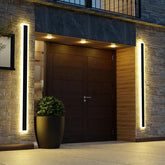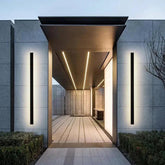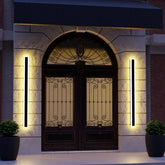Choosing the Perfect Reading Light for Comfort and Focus
The Importance of Good Reading Light
Reading has always been a timeless activity, whether enjoyed for learning, work, or relaxation. Yet, the quality of lighting directly impacts how enjoyable and effective the experience is. A reading light is more than just a lamp—it is a tool that enhances focus, prevents eye strain, and creates the right mood for absorbing books, documents, or digital material.
The wrong lighting can quickly turn reading into an uncomfortable task. Harsh glares or dim shadows cause fatigue and headaches. A proper reading light eliminates these challenges, ensuring that hours spent reading remain comfortable and productive.
What Makes a Reading Light Different?
Focused Illumination
Unlike general ceiling lights that spread illumination across an entire room, reading lights provides targeted brightness exactly where it’s needed. This focus reduces strain and prevents unnecessary shadows.
Adjustable Design
Many reading lights come with adjustable arms, swivel heads, or dimming functions. These features allow users to customize the angle and intensity of light depending on the time of day or task.
Style and Function Combined
Reading lights aren’t just functional—they also complement home décor. From sleek modern lamps to vintage-inspired fixtures, there are countless designs that blend practicality with style.
Types of Reading Lights
Bedside Reading Lights
Perfect for nighttime reading, bedside fixtures can be mounted on walls or placed on nightstands. Adjustable arms or flexible necks ensure light is directed without disturbing partners.
Desk Lamps
For students, professionals, or avid readers, desk lamps provide strong task lighting for study or work areas. Their focused beams illuminate documents without creating glare on screens.
Floor Lamps with Reading Arms
Floor lamps often include adjustable reading arms, making them versatile for living rooms or shared spaces. They combine general ambient lighting with targeted illumination.
Clip-On and Portable Reading Lights
Clip-on lights attach to books, headboards, or shelves, offering maximum portability. Portable rechargeable reading lights are especially popular for travel or flexible use.
Placement of Reading Lights
Bedrooms
In bedrooms, reading lights should be positioned to provide direct illumination without shining into the eyes. Wall-mounted lights beside the bed save space on nightstands and create a cozy atmosphere.
Living Rooms
In shared spaces, floor lamps with adjustable reading arms are ideal. They can be angled for reading while still contributing to the overall room ambience.
Study Rooms and Offices
For study areas, desk-mounted reading lights provide consistent, bright illumination. Neutral white lighting is often recommended to promote focus and reduce drowsiness.
Outdoor Reading Spaces
For patios or balconies, portable rechargeable reading lights make evening reading comfortable. Weather-resistant designs add flexibility for outdoor use.
Choosing the Right Reading Light
Brightness and Lumens
The ideal reading lights should offer sufficient brightness without being harsh. Between 400 and 600 lumens is typically recommended for reading tasks.
Color Temperature
Color temperature plays a major role in reading comfort. Warm white (2700K–3000K) creates a cozy atmosphere, while neutral white (3500K–4000K) promotes focus and clarity. Cool white (5000K) can be too harsh for long reading sessions.
Adjustability
The ability to adjust the angle and intensity of light ensures adaptability. Dimmable reading lights are excellent for transitioning between day and night use.
Energy Efficiency
LED reading lights are preferred for their longevity and efficiency. They provide consistent brightness while consuming minimal energy.
How Reading Lights Improve Eye Health
Proper lighting prevents eye strain, one of the most common issues among frequent readers. A well-placed reading light reduces squinting, prevents shadows on text, and minimizes contrast between page and environment.
For digital reading, where screen glare can be problematic, having balanced ambient lighting combined with reading lights ensures a comfortable experience.
Styles of Reading Lights
Modern Minimalist
Clean lines and neutral finishes define modern minimalist designs. They blend seamlessly with contemporary interiors while providing functional illumination.
Vintage and Classic
Vintage-inspired reading lamps often use brass finishes, decorative shades, and warm light tones, making them perfect for cozy reading nooks.

Industrial Style
Industrial reading lights feature exposed bulbs, matte black finishes, and bold metallic elements. They bring a raw, stylish edge to home offices and lofts.
Decorative Statement Reading Lights
For design-forward homeowners, statement reading lights incorporate artistic shapes and unique materials, becoming decorative focal points in addition to functional tools.
Smart Reading Lights
With advances in technology, many reading lights now integrate smart features. These include voice or app control, adjustable color temperatures, and programmable schedules. Smart reading lights adapt to different activities—whether working, studying, or relaxing with a novel.
Advantages of Reading Lights in Home Design
Enhanced Comfort
A reading light creates a comfortable environment where readers can focus without distraction.
Improved Productivity
For students and professionals, well-designed reading lights improve concentration and efficiency by reducing fatigue.
Decorative Value
Modern reading lights are available in countless designs that complement interiors, contributing to aesthetics as much as functionality.
Flexible Usage
From portable clip-on models to elegant wall-mounted fixtures, reading lights adapt to any space and lifestyle.
Installation Considerations
Most table and floor reading lights require minimal installation—simply plugging into an outlet. Wall-mounted fixtures may require basic drilling, though many models now include renter-friendly mounting options. Rechargeable and portable models require no installation at all, offering ultimate flexibility.
Why Every Home Needs a Reading Light
Reading is an activity that deserves proper lighting. A reading light ensures eye comfort, improves concentration, and enhances ambience. Far from being a simple accessory, it plays an essential role in shaping enjoyable reading environments at home.
Whether it’s a student studying late, a professional reviewing documents, or someone unwinding with a favorite book, right reading lights transform the experience into one of comfort, focus, and relaxation.
FAQs
What is the ideal brightness for reading lights?
Most experts recommend 400–600 lumens for reading, offering enough clarity without causing glare or discomfort.
Can reading lights reduce eye strain?
Yes. Properly placed reading lights minimize shadows and glare, reducing strain and making reading more comfortable.
Are LED reading lights better than traditional bulbs?
Yes. LED reading lights last longer, use less energy, and provide consistent, adjustable illumination ideal for extended use.
Where should I place reading lights in my bedroom?
Position the light slightly above and to the side of your reading area, ensuring it illuminates the page without shining directly into your eyes.
Do portable reading lights work as well as mounted ones?
Yes. Portable rechargeable models provide focused illumination and are excellent for travel, though mounted fixtures may offer stronger, more stable lighting.










